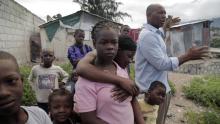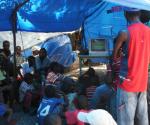Ten Years After Haiti’s Earthquake: A Decade of Aftershocks and Unkept Promises
It can take years or even decades for countries to recover from major disasters. The aim is to build back better over time so the country becomes more resilient, better able to prevent and respond to a wide range of hazards. Haiti remains just as vulnerable to major disasters as it was when the earthquake hit ten years ago. There is not an improved building code nor a resourced and widely understood national emergency response plan nor drills to operationalize and refine such plans. Haiti remains consumed by political instability, the root of which is the lack of an effective, accountable government that invests in its people. Donors have become frustrated and less interested - that is until the next major disaster happens, which eventually it will. An article below by Miami Herald journalist Jacqueline Charles and Jose Iglesias traces what has happened since 2010 and why.






